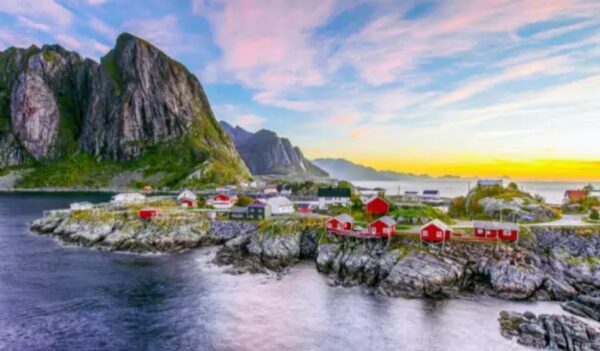
If a global conflict like World War Three were to break out, no country would be entirely immune from the consequences.
However, some countries are considered safer than others due to their geopolitical neutrality, geographic isolation, self-sufficiency, stable governments, and low strategic military value.
Here’s a list of countries often cited as the safest in such a scenario, along with the reasons why:
1. New Zealand is geographically isolated in the South Pacific, far from major global powers and conflict zones. It has a low international profile, is self-sufficient in food production, and is not heavily involved in military alliances, which makes it less likely to be drawn into global warfare.
2. Iceland is remote, sparsely populated, and located in the North Atlantic. While it is a NATO member, it does not host any permanent military forces or strategic infrastructure. Its natural isolation and political stability contribute to its reputation as a safe haven.
3. Bhutan is a small Himalayan kingdom that practices a policy of non-alignment and minimal foreign engagement. Its rugged terrain and lack of strategic value make it unlikely to become involved in major conflicts. The government also emphasizes peace and sustainability over military development.
4. Ireland is a neutral country and not a member of NATO. It has a stable political environment and is geographically removed from mainland Europe, reducing its exposure to conflict. Its neutrality in previous global conflicts reinforces its position as a peaceful and low-risk nation.
5. Finland has traditionally maintained a strong civil defense system and a culture of preparedness. Although it has recently joined NATO, it still benefits from its vast forests, low population density, and relatively stable domestic situation. Its safety in wartime would depend on the nature of the conflict and its involvement through NATO.
6. Canada is a large, resource-rich country with vast unpopulated regions that would likely remain untouched in a major war. While it is a NATO member and a U.S. ally, its sheer size and the remoteness of many of its territories could offer safe zones far from conflict zones.
7. Chile is located along the western edge of South America and is relatively isolated by the Andes Mountains and the Pacific Ocean. It has a stable government and is not typically involved in global political conflicts, making it a lower-risk option in the case of a world war.
8. Costa Rica is one of the few countries in the world without a standing army. It maintains a policy of neutrality and peaceful diplomacy, which, along with its geographic location away from global conflict centers, contributes to its reputation for safety and stability.
9. Australia is geographically isolated and has vast rural areas far from potential military targets. While it is a close ally of Western powers and part of international military agreements, the interior and remote regions of Australia could offer relative safety in a large-scale war, depending on the nature of the conflict.
10. Switzerland is often considered one of the safest countries in the event of a world war due to its long-standing neutrality, strong civil defense systems, and geographic protection by the Alps. The country is not part of any major military alliance and maintains a policy of armed neutrality, making it less likely to be directly targeted.
















